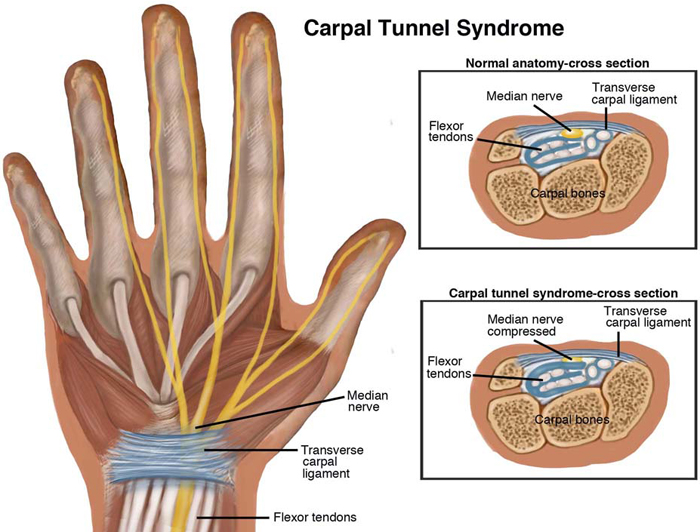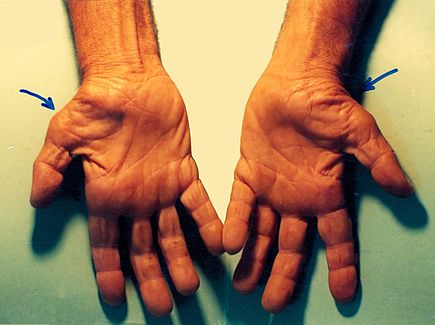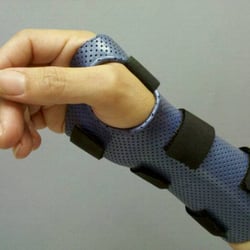|
BOOK NOW |
ASK ABOUT YOUR PAIN |
Home > Blog > Hand Therapy & Customized Splinting > Finger, Hand, Wrist, Forearm & Elbow Conditions > Carpal Tunnel Syndrome Hand Physiotherapy
Carpal Tunnel Syndrome Hand Physiotherapy
“Working with a knowledgeable hand therapist can make the difference between success and failure in complex hand surgical cases. The therapist extends the continuum of our care, as well as functioning as coach and trainer for our patients.”
Marybeth Ezaki, MD, Past President, American Society for Surgery of the Hand
In Phoenix Rehab, our senior hand therapists are experienced licensed and dedicated therapists (physiotherapists and/or occupational therapists) who specialized ONLY in the rehabilitation, treatment and management of painful fingers, hands, wrists, forearm & elbow conditions, because of interest, passion and expertise.

Carpal tunnel syndrome (CTS) typically happens when the median nerve passing through our wrist is pinched or compressed, causing a progressively and increasingly painful condition.
You see, the carpal tunnel is a narrow passageway linking your arm to your hand in which nine tendons and the median nerve are surrounded by an inflexible bony bracelet. The carpal tunnel is comprised of the carpal bones and the transverse carpal ligament.
What causes carpal tunnel syndrome?
The most commonly accepted explanation is that CTS is caused by a combination of events or situations.
Some patients have smaller carpal tunnels and are therefore more likely to have pressure on the median nerve. Injury to the wrist from a sprain or fracture can cause swelling in the carpal tunnel, resulting in compression of the median nerve.
Other factors, such as
- arthritis
- thyroid disease
- diabetes
- pregnancy
- repeated use of vibratory tools (e.g. jackhammer or drill)
- or prolonged extreme bending of the wrist can all result in nerve irritation, causing CTS.
What are the symptoms of carpal tunnel syndrome?
Many people report waking up (or being woken up, or getting these symptoms as they use their hands with activities) with numbness in their thumb, index, middle and part of their ring fingers on the palm side of their hand.
Some patients report an ache or sharp pains in their hand, wrist or forearm.
Patients may feel clumsy and drop things, or have problems with fine motor tasks, such as buttoning a shirt or picking up coins. A weakened grip or pinch from prolonged CTS may cause problems when turning a key or opening a jar.

If left undiagnosed or untreated for a prolonged period of time...it may lead to shrinkage (muscle atrophy) of the muscles that are innervated by the compressed median nerve.
How can a hand therapist help treat carpal tunnel syndrome?

Our senior hand therapists can help reduce the symptoms of CTS by first performing a complete evaluation to determine the main cause of the problem.
We might recommend wearing a customized wrist brace at night to keep the wrist in a safe position, or during the day for activities that might irritate the nerve.
We can provide patient education and recommendations for modifications to reduce symptoms during activities of daily living, work tasks and recreational activities. We may also prescribe specific exercises to help in the recovery or prevention of future CTS occurrences.
Patients can also receive hand therapy with the following modalities: